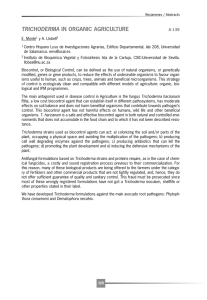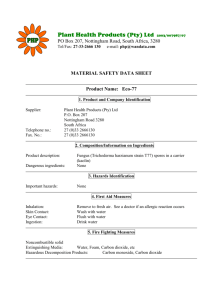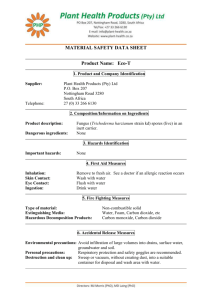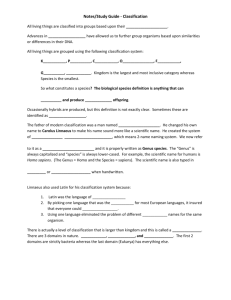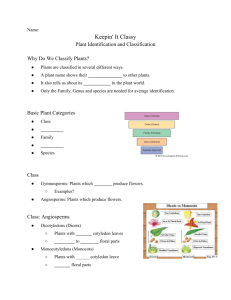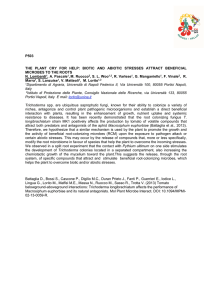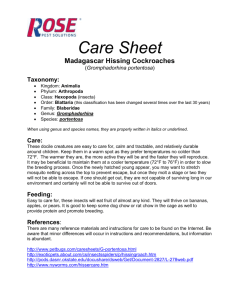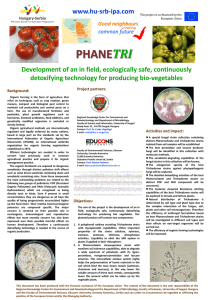Abstract of the dissertation Name of the candidate: Mag.rer.nat
advertisement
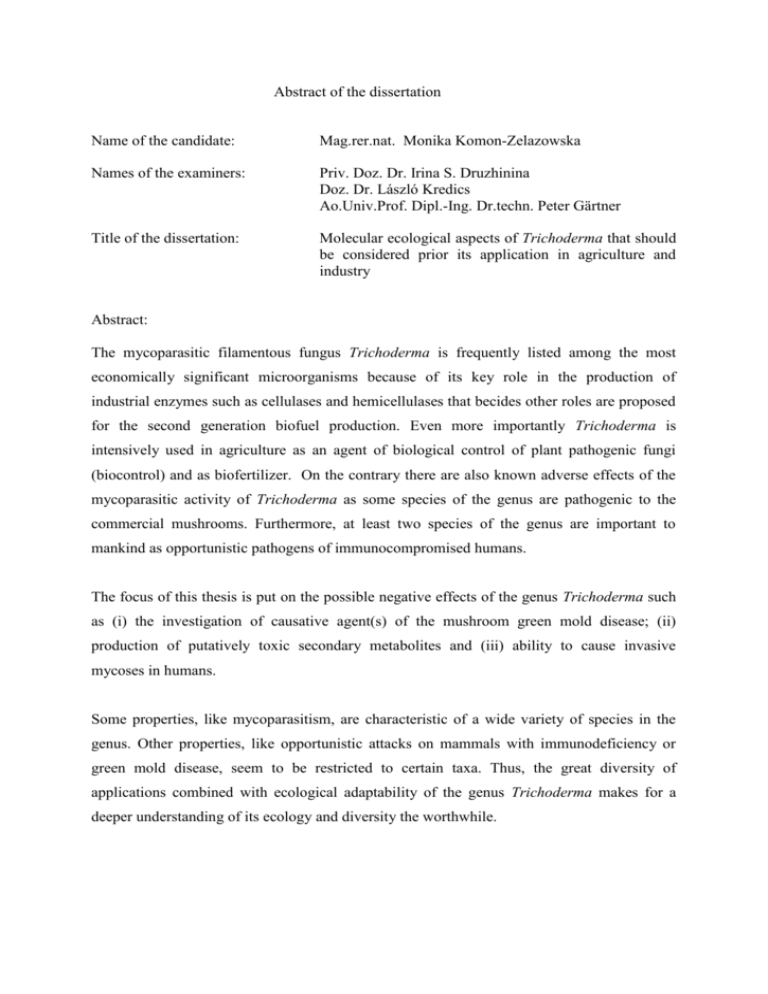
Abstract of the dissertation Name of the candidate: Mag.rer.nat. Monika Komon-Zelazowska Names of the examiners: Priv. Doz. Dr. Irina S. Druzhinina Doz. Dr. László Kredics Ao.Univ.Prof. Dipl.-Ing. Dr.techn. Peter Gärtner Title of the dissertation: Molecular ecological aspects of Trichoderma that should be considered prior its application in agriculture and industry Abstract: The mycoparasitic filamentous fungus Trichoderma is frequently listed among the most economically significant microorganisms because of its key role in the production of industrial enzymes such as cellulases and hemicellulases that becides other roles are proposed for the second generation biofuel production. Even more importantly Trichoderma is intensively used in agriculture as an agent of biological control of plant pathogenic fungi (biocontrol) and as biofertilizer. On the contrary there are also known adverse effects of the mycoparasitic activity of Trichoderma as some species of the genus are pathogenic to the commercial mushrooms. Furthermore, at least two species of the genus are important to mankind as opportunistic pathogens of immunocompromised humans. The focus of this thesis is put on the possible negative effects of the genus Trichoderma such as (i) the investigation of causative agent(s) of the mushroom green mold disease; (ii) production of putatively toxic secondary metabolites and (iii) ability to cause invasive mycoses in humans. Some properties, like mycoparasitism, are characteristic of a wide variety of species in the genus. Other properties, like opportunistic attacks on mammals with immunodeficiency or green mold disease, seem to be restricted to certain taxa. Thus, the great diversity of applications combined with ecological adaptability of the genus Trichoderma makes for a deeper understanding of its ecology and diversity the worthwhile.
